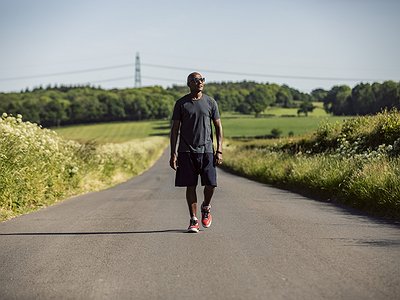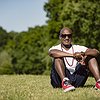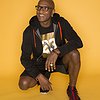Part 1
Name: Philippe Quenum
Nationality: Swiss
Occupation: DJ, producer
Current Release: Quenum's Fact Action is out now on Pan Pot's Second State imprint.
Recommendations: My first recommendation is a building in Manhattan, the El Dorado, on the edge of Central Park. When I’m in New York I like to go running in the Park, there’s a jogging path around a water reservoir. From there you can see the El Dorado. I’m fascinated by the architecture, especially this building, it has a strong physical effect on me, I think I must have lived there in a past life. It has such a strong presence, like a mystical temple.
One musician who deeply affects me is Arthur Russell. When I discovered him a few years back, it really moved me, I find there is so much emotion in his art, there’s sadness but also hope, also something positive. He was someone who had a difficult story, but also such a rich life, with plenty of wonderful experiences and meeting incredible people. He was ahead of his time, and I think his music was only understood years after his (early) death. He deserves a lot more attention and that a lot more people get to know his music.
If you enjoyed this interview with Quenum, visit his facebook, soundcloud or instagram for updates, insights and music.
When did you start DJing - and what or who were your early passions and influences? What is about music and/or sound that drew you to it?
I started DJing at home, when a friend lent me his turntables. Before that, I was a dancer, I was into modern jazz and then breakdancing. I was more passionate about dance, about expressing music through dance. I had an uncle in Paris who managed the security for what was then the best nightclub in town, the Palace, so I would go with him on weekends and that’s how I discovered nightlife. I was always looking at the DJ, I found that work magical, even if I didn’t understand anything about it! So when a friend gave me turntables I could practice at home and try to uncover the mystery, to understand how DJing worked, I drove my family nuts. Little by little I got a few jobs, replacing DJs who were taking a night off, I got a few gigs in clubs and radio stations, mostly through my mates and other contacts.
My first influence in music was my father, he was from West Africa (Benin). We grew up with music in our house, there was always music playing and any opportunity was good for having a party, whether it was a birthday or new year’s, any excuse was good to crank up the sound system. My father listened to music before going to work, after work, continuously on weekends; he listened to everything, African music, salsa, French music, American soul music. We were living in Abidjan, Ivory Coast, and every weekend we went to the record shop, my father, my brother and I - that’s how the shit started, which would shape my whole life! My father would take us along record-buying; each time we were allowed to pick two records for ourselves.
From the beginning I was attracted to the bass. My father always wanted to have the best sound system, with the good bass, it was like a contest between him and his brothers - who had the best system with the most powerful speakers. Also in Africa, you could listen to music as loud as you wanted. Actually the neighbours were happy when you would play music at full volume, they loved listening to it and often joined in the party. When a neighbour would crank up the volume, from my bedroom what I could hear was the bass. That’s what touched me first, my immediate perception, the vibrations from the bass.
For most artists, originality is first preceded by a phase of learning and, often, emulating others. What was this like for you? How would you describe your own development as an artist and the transition towards your own voice? What is the relationship between copying, learning and your own creativity?
At first, I was mostly in clubs, usually because I was there performing as a dancer. Together with my brother and some friends we had put together one of the top breakdancing crews in France, we performed in clubs all over the country. And when I was not dancing, I was standing next to the DJ, trying to understand what was going on. I also had friends who worked as DJs in clubs, where they played all kinds of music, it was the 1980s.
Then a friend let me have his turntables, he showed me quickly how it worked and then, because I had them in my bedroom at home, I spent hours learning by myself, practising how to mix beats. Beyond that, it’s all about doing your own musical research, finding out what I liked mixing, that’s a very personal journey.
The first time I had a mind-blowing experience with electronic music was in 1984, when I went to the Roxy club in New York. I had no money but I was well connected through breakdancing, so our crew was invited to dance in New York. It was an incredible experience, also meeting all the pioneering artists like the Rock Steady Crew, Futura 2000. One night we went to the Roxy club and that was awesome. I went to see the dancers, I was not really thinking about the music. That night the DJ was DST, a legend in hip-hop and DJing in general. Also with him was Herbie Hancock, playing live. Just talking about it right now gives me goosebumps! It was the first time I was watching a performance like that, DST scratching, mixing electronic music and also Herbie Hancock with his Atari computer, playing Rockit. That’s when I thought this is where I want to be, this what I want to do with my life.
Dancing was very tough, you had to have money to pay for classes and you earned so little, it was too difficult for me, and so physically demanding as well. So I veered towards music and DJing. But the connection between music and dancing has never left me. Maybe it’s also part of my old school training, but I’m driven by seeing people dancing and enjoying themselves on the dancefloor. You know when I started working in clubs, the owners would look at the dancefloor and make sure it was always full of people who were moving, and as their employee I always had that pressure. You were there as a DJ to serve people, to give them an opportunity to have fun and to escape, and that is still in me.
About learning to DJ and about music in general, I would not really speak about copying but rather about influences. Of course, I came across people in my career who helped me to understand certain things, but I had to shape that according to my own style and preferences. I always liked to make my own choices. Many people have had a strong influence on me, but I like to develop my own ideas. It’s not easy, it takes more time and it’s not always understood or accepted, but in the end it’s yourself.







